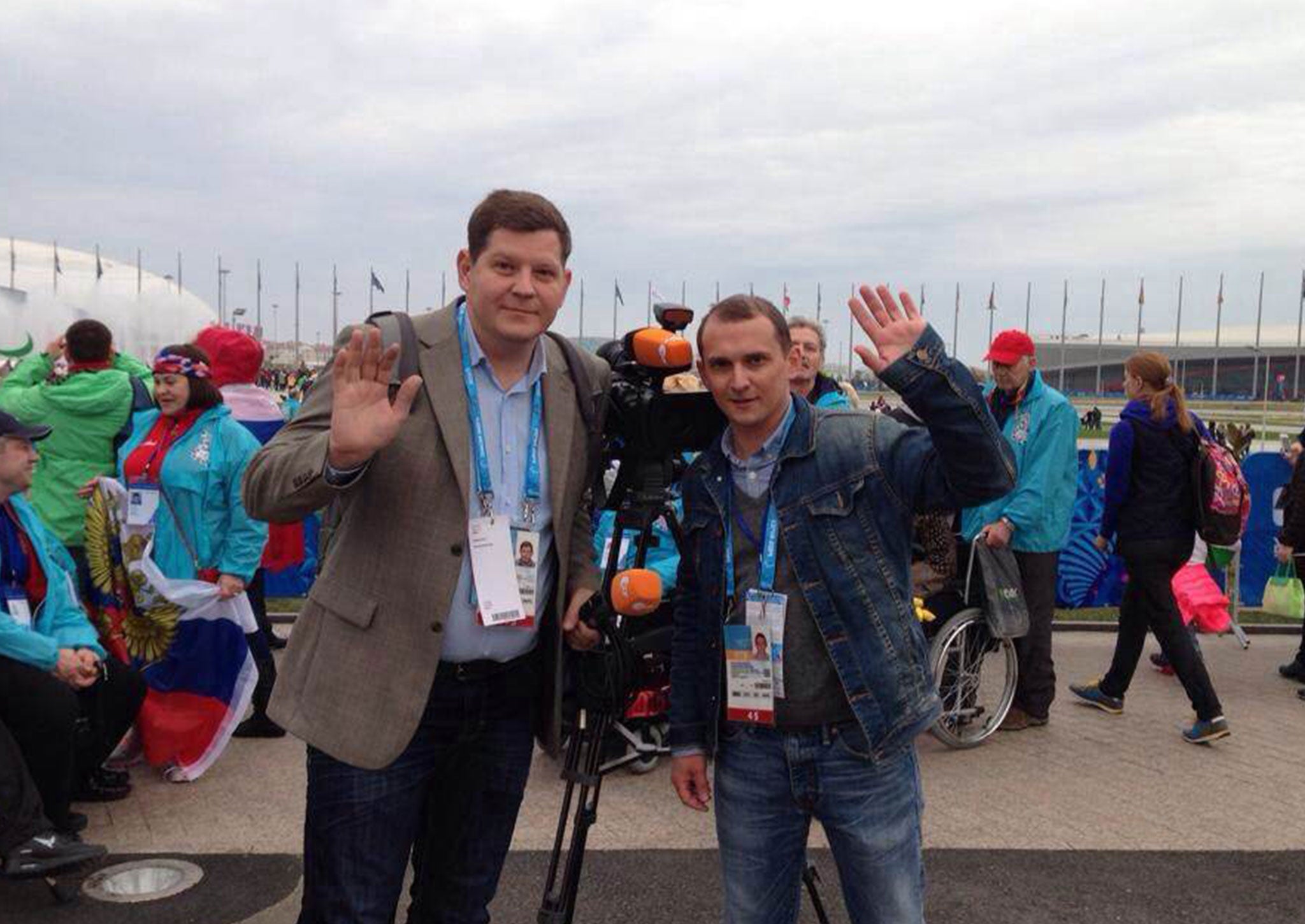Voices in Danger: The journalists facing death if they return to Russia
Nikolai Yarst and Philipp Vasilenko were arrested before they could break their story on a child trafficking ring linked to the Russian government

A Sochi-based journalist and his cameraman who had been investigating suspected child trafficking by Russian government officials fled Moscow with the clothes on their backs. Their lawyer warned them never to return to Sochi, or they could be killed. Now asylum seekers, Nikolai Yarst and Philipp Vasilenko talked to Voices in Danger about the events that led them to flee for their lives.
“My car still sits at the Sochi Airport,” says Yarst.
Months earlier a group of Russian police officers surrounded the car of the journalist Yarst and cameraman Vasilenko as they were on their way to interview a government official in connection with the kidnapping of a seven-year-old girl in Sochi.
They were in the process of uncovering what they believed to be a child trafficking ring made up of Russian government officials in Sochi. The interview was to be the conclusive evidence they required before airing the report on the newly created Public Television of Russia. Instead, they found themselves arrested on trumped-up charges of drugs possession and in police custody. The date was 23 May 2013.
“They threatened to rape me with a chair and to cut my stomach open,” Vasilenko said of his time in police custody. Police officers took his clothes, his cellphone and all his equipment. They ordered him to confess that Yarst was a drug dealer. He refused. Vasilenko believes that the only reason the rape did not happen was because the Sochi games were taking place.
Yarst was also held in policy custody, and was later placed under house arrest for six months. “The only reason we were protected was because the government didn't want any publicity surrounding the Olympics. But when the Olympics was over, my case was reopened and we knew we had no protection left,” Yarst said.
Neighbours would inform the two when police visited the residents of their building, asking questions and making threats. The threats Yarst and Vasilenko personally received escalated, almost daily, via text message, phone calls and, finally, being placed under surveillance. One day, on the streets in Sochi, a stranger walked up to Vasilenko and told him that he had six months to live.
Alexander Popkov, Yarst's criminal and human rights lawyer working for justice in Sochi, described the system at work to silence journalists, among others. “A charge of possession of drugs is often used in Russia to punish disobedient people or to simply improve the statistics for police departments. Very often traffic police engage in this, although there is a special anti-drug force,” he said.
The day after the Paralympics concluded, 17 March, the two men travelled to Moscow to apply for travel visas. They planned to use the visas later in the year. “We had received our travel visas when we got a call from our lawyer in Sochi who told us, 'Don't come back, they are waiting for you,'” Yarst said. With what money they had, the clothes on their backs and only the documents they carried to support their innocence, they got on the first flight to New York. Yarst and Vasilenko arrived in New York on 21 March 2014.
Human Rights First, a non-profit international human rights organisation based in New York, Washington D.C. and Houston, picked up their case and sourced their now pro-bono Attorney Elena Chkolnikova of Buchanan Ingersoll & Rooney PC. What struck her in their first meeting together was the “deep sadness” in their eyes. Regarding their case, she said, “For political asylum purposes, I believe they have a strong case not only based on fear of returning to the country for exposing corruption in local government, but also based on their sexual relationship which anyone in Russia knows is very frowned upon.”
Amnesty International Europe and Central Asia Director John Dalhuisen said: “Just a day after Russia was fêted on the world stage at the closing ceremonies of the Sochi Winter Olympics, the Russian authorities have laid bare the reality of life in the country today...those who dare to express dissenting views face serious consequences.”
According to Amnesty International, not only have punitive new laws cracking down on dissent, freedom of expression and assembly seen many individuals imprisoned on politically-motivated charges, but there are now severe restrictions on the Lesbian, Gay, Bi-sexual, Transgender and Intersex (LGBTI) community and those who support them.”
Voices in Danger invited Russian government representatives to respond to the points raised in this article. There was no comment made.

Join our commenting forum
Join thought-provoking conversations, follow other Independent readers and see their replies